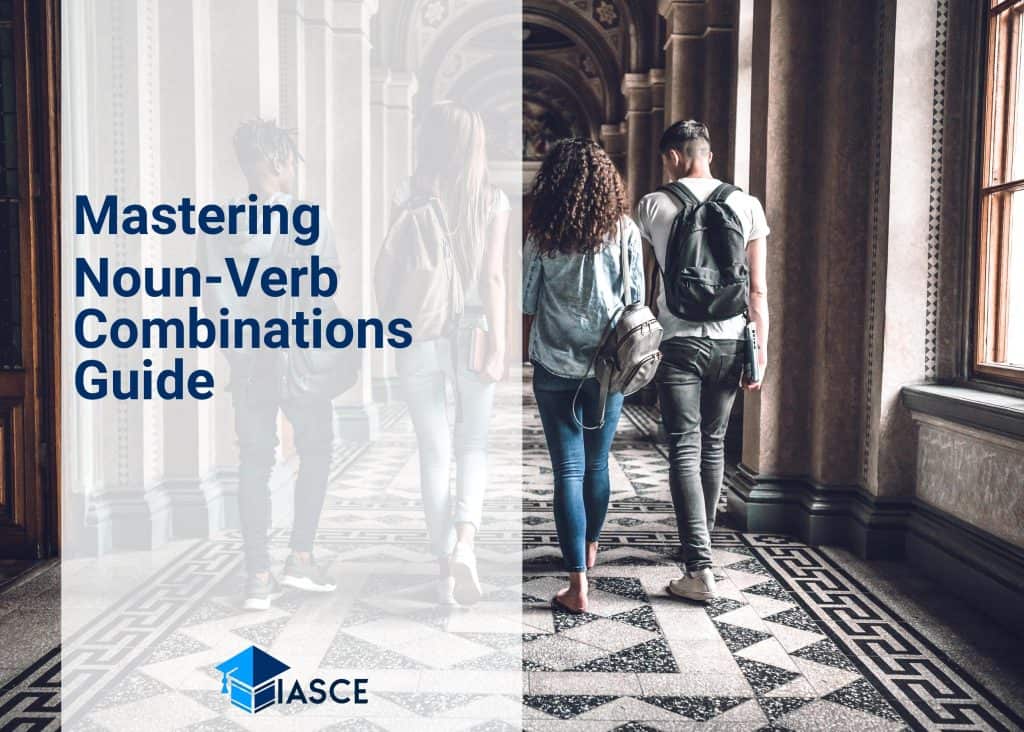I’ve always found noun verb combinations to be the linchpin of mastering English grammar. Without a solid understanding of these, you’re missing out on a crucial component of effective communication. Let’s unpack this topic together in my ultimate guide.
Fascinated with how words interact in sentences? Me too! To articulate your ideas fluently, it’s essential to get the hang of noun verb combos. They’re not just about grammar rules; they’re the rhythm and melody that make English come alive.
Determined to help you navigate this language labyrinth, I’ve crafted an all-encompassing guide focused on noun verb combinations. So let’s dive into this grammatical exploration and become ace word-smiths together!
Understanding Noun Verb Combinations: The Basics
When we dive into the vast ocean of English grammar, noun verb combinations are like the colorful coral reefs that add depth and richness. Let’s start with a simple definition. A noun verb combination is an instance where a noun directly connects to a verb in a sentence.
Nouns play a crucial role in sentences. They’re the heroes, places, things, or ideas we talk about. Verbs? Well, they’re what these nouns do – actions or states of being. But it’s when these two unite that language truly comes alive.
For instance, take this basic example:
|
Noun |
Verb |
|---|---|
|
The dog |
barks |
The sentence becomes “The dog barks.” Here ‘dog’ is our noun and ‘barks’ is our verb. Simple enough right? Now let’s look at another example:
|
Noun |
Verb |
|---|---|
|
My imagination |
takes flight |
In this case, “My imagination takes flight.” Here again ‘imagination’ is our noun but notice how ‘takes flight’, our verb phrase, adds more flair compared to just ‘barks’.
Learning to master such combinations can elevate your language skills from good to great! It helps not just in enhancing communication fluency but also makes reading comprehension easier.
But remember folks – not all verbs pair well with every noun! Some combos make sense while others might leave you scratching your head. For example :
-
I read books – Correct!
-
I drink books – Not quite!
It’s important therefore to understand which verbs naturally connect with certain nouns based on their meanings and contexts.
To help you out here’s a quick tip: Practice makes perfect! Try creating your own sentences using different noun verb combinations and check if they sound natural or awkward.
You’d be amazed at how much variety there is in English once you start experimenting with different combos!
So go ahead – dive into those linguistic waters and start exploring those vibrant reefs of noun verb combinations!
Practical Techniques for Mastering English Grammar
Delving into the world of English grammar, it’s crucial to understand that noun-verb combinations play a pivotal role. They’re the backbone of any sentence, and knowing how to use them accurately can drastically improve your language skills.
Firstly, practice makes perfect. I can’t stress enough the importance of practice in mastering noun-verb combinations. This process involves using various learning tools such as books, apps, or online platforms and consistently practicing through exercises and quizzes.
Secondly, reading extensively is another beneficial method. When you expose yourself to diverse writing styles – from novels and newspapers to blog posts and poetry – you’ll naturally begin picking up correct usage patterns. Not only does this help with understanding noun-verb combos but also enhances your overall vocabulary.
Another technique worth mentioning is learning through context. Don’t just memorize noun-verb pairs; try incorporating them in sentences or even short stories. It’s easier to remember a word when it’s connected with an idea or situation.
|
Noun |
Verb |
Sentence example |
|---|---|---|
|
Dog |
Runs |
The dog runs after the ball |
|
Rain |
Pours |
When rain pours down heavily, I love staying indoors |
It’s also important to note that sometimes nouns change form when they become verbs – these are known as denominal verbs. For example, ‘hammer’ as a noun becomes ‘to hammer’ as a verb.
Incorporating these techniques into your daily study routine will undoubtedly aid your journey towards mastering English grammar. Just remember – consistency is key!
Lastly, don’t be hard on yourself if you make mistakes along the way; they’re part of the learning process. Embrace them because every error brings you one step closer to becoming proficient in English grammar.
Conclusion: Embrace the Power of Noun Verb Pairings
I’ve guided you through the maze of noun verb combinations, and I hope you’re feeling confident about mastering English grammar. It’s not as intimidating as it seemed at first, right? The key to success lies in understanding and using these pairings effectively.
Let’s take a moment to reflect on what we’ve learned:
-
Noun verb combinations are crucial for creating coherent sentences.
-
They bring precision and clarity to your communication.
-
Mastering them can elevate your written and spoken English to new heights.
Remember, practice is essential when it comes to language learning. Be patient with yourself, experiment with new constructions, and don’t be afraid of making mistakes. That’s how we learn!
In this digital age where information is readily available at our fingertips, there are numerous resources that can aid in your journey towards becoming proficient in English grammar. Online platforms like Grammarly or the Purdue Online Writing Lab (OWL) offer valuable tools and exercises.
Finally, let me stress one thing: embrace the power of noun verb pairings! They’re your secret weapon for mastering English grammar. With time and perseverance, I’m confident that you’ll master these combinations effortlessly.
Enjoy crafting beautiful sentences by leveraging noun verb pairings. Here’s to unlocking the full potential of English Grammar!

